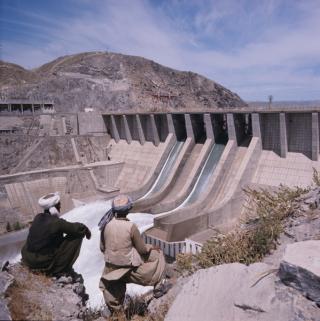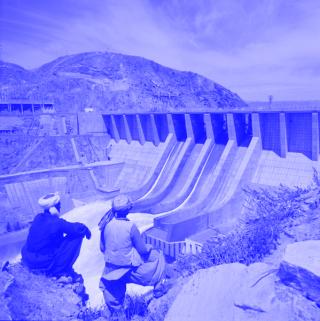Topic
Soviet Dams for the »Third World«

Cold War dam constructions were projects of particularly strong significance for political propaganda that simultaneously massively transformed regional economic structures. This research examines the Soviet Union’s economic-technical collaboration with countries from the Global South by taking technology transfer in the water infrastructure field as its case study.

Globalisation of the Socialist Development Model: A Transnational Study of Soviet Dam Construction in the Cold WarThe socialist development model assigned a central role to heavy industry and infrastructure: This study therefore uses dam projects as a lens to examine East-South relations in the Cold War. The construction of hydroelectric power stations generally played a central role in development discourses of the 20th century. East and West alike exported the concept of economic development through electrification during the Cold War. This study centres around the question of specifically socialist models of economy and development in connection with dam construction and their attractiveness for the recipient countries in the Global South. Using materials from Russian archives and, if possible, records in the respective partner countries, this work aims at retracing the political and economic debates and decision processes. It particularly focuses on analysing networks and processes of exchange, utilising the biographies and mobility patterns of key actors. The study thereby sheds light on an interaction between Eastern Europe and the Global South that has remained, until now, neglected.
Funded by the German Research Foundation (DFG) as part of the subproject B03 of the SFB 199 »Processes of Spatialization under the Global Condition«.

